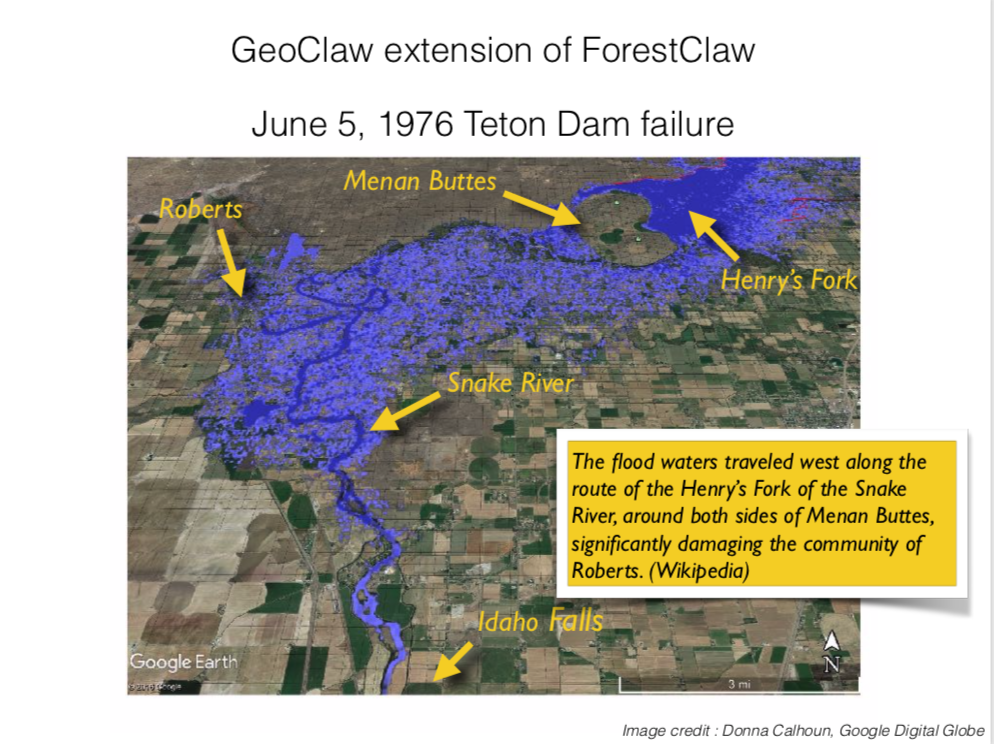NSF funded project in scientific computing and natural hazards modeling
Duration : Three years of NSF funding available
Start date : Fall, 2019
Program : PhD in Computing, Boise State University
Supervisor : Donna Calhoun (Dept. of Mathematics)
I am seeking a talented, highly motivated and independent student interested in pursuing a PhD in Computing, with an emphasis in Computational Science and Engineering, at Boise State University. The potential doctoral candidate would work in Donna Calhoun's group in the Department of Mathematics at Boise State. The proposed project offers an interested candidate the opportunity to work directly at the intersection of the latest developments in numerical methods development, scientific computing, and geophysical hazards modeling.
The aim of the proposed project is to develop a parallel, direct solver for elliptic problems on adaptively refined Cartesian meshes. The targeted numerical model is the dispersive correction terms to the shallow water wave equations and the application domain is geophysical modeling for tsunamis generated from landslides, or other mechanisms where short wave lengths are a dominant and significant feature. The numerical approach to be taken uses a block-structured adaptive mesh refinement (AMR) where logically Cartesian grids are used as patches in the AMR hierarchy. On each patch, finite volume schemes based on the wave propagation algorithms in Clawpack are used for hyperbolic terms. The elliptic solver will be based on the low-rank Hierarchical-Poincare-Stekhlov (HPS) method developed by P. G. Martinsson and A. Gillman (SIAM J. Sci. Comput., Vol. 36 (4) 2014). The parallel adaptive framework for this project is based on the ForestClaw, developed by D. Calhoun.
The interested candidate should have a background in applied mathematics and scientific computing, and should demonstrate experience and/or a strong desire to work on development of numerical methods and software in a C/C++/Fortran programming environment. Strong candidates from other areas (computer science, physics geophysics and so) will also be considered. Familiarity with parallel programming paradigms such as MPI (for distributed computing), OpenMP (for shared memory) or CUDA (for GPU programming) is a plus. A successful candidate who completes a PhD with this project would be well-positioned for employment opportunities in academics, national labs and government agencies (such as the US Geological Survey) which make use of geophysical modeling.
This position is a National Science Foundation funded project "Parallel, adaptive Cartesian grid algorithms for natural hazards modeling", under the Division of Mathematical Sciences and will be funded for 3 years. Women and under-represented groups in the STEM fields are especially encouraged to apply.
Please contact Donna Calhoun if you are interested, or go directly to the BSU PhD in Computing website at PhD in Computing.
Applicant deadline for full consideration is January 5th, 2019.
Adaptive Mesh Refinement (AMR) for natural hazards modeling
 |
 |
Volcanic ash transport on a cubed sphere |
Flooding using depth averaged flow |